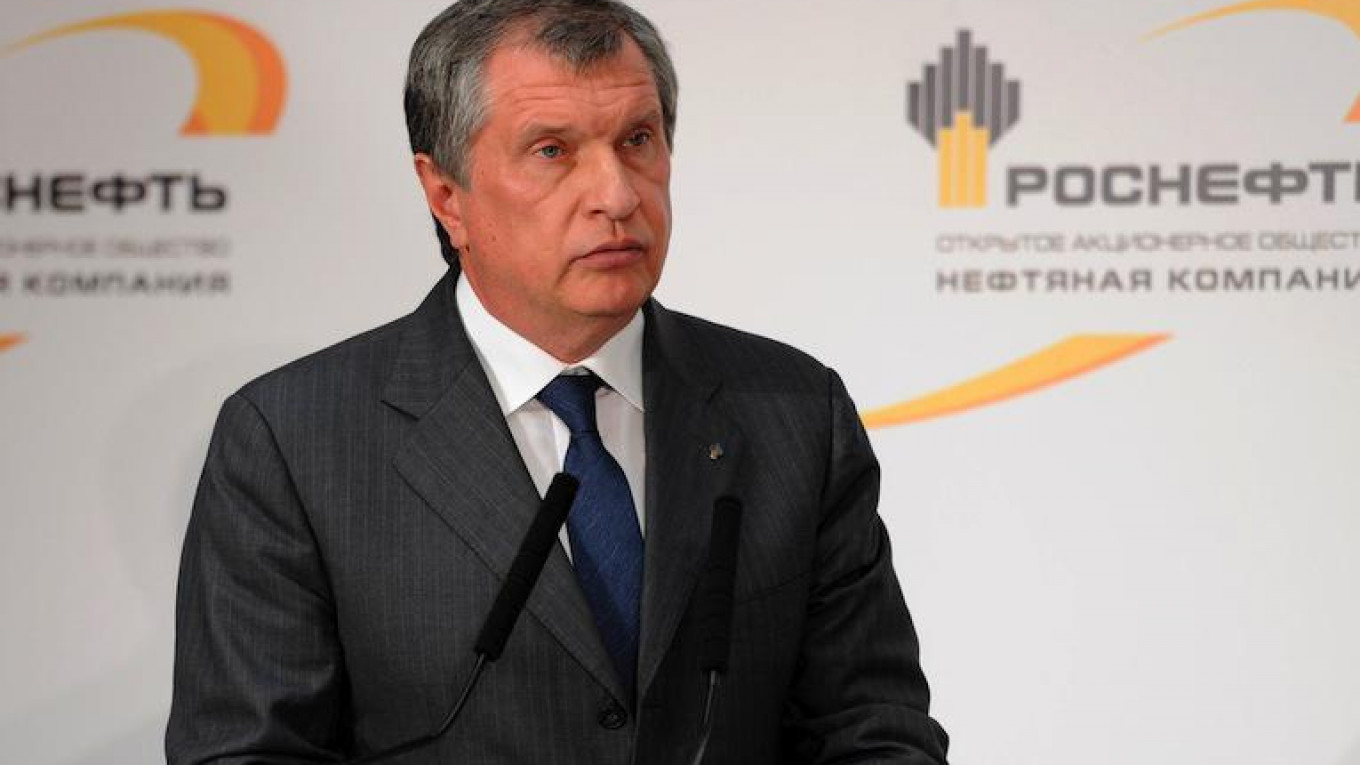Russian President Vladimir Putin has forbidden energy giant Rosneft from taking part in next month's privatization of oil company Bashneft, Bloomberg reported Tuesday.
The Kremlin is to sell its stake in the company, which consists of just over 50
percent of Bashneft's shares. The stake has been independently valued at up to 315 billion
rubles ($4.7 billion).
Rosneft's application to take part in the deal had sparked widespread uncertainty across Russia's economic landscape. Although the company is legally allowed to bid for the shares, the Russian state owns a 50.8 percent stake in the firm through its parent company, Rosneftegaz.
Rosneft, headed by longstanding Putin ally Igor Sechin, had argued that acquiring Bashneft would
increase the value of the company, and of the government’s stake in the firm, Bloomberg reported. The Kremlin plans to sell its share in Rosneft later this year, after the Bashneft sale.
Russia's financial authorities are reported to be strongly opposed to any potential Rosneft bid, with one government official recently telling the Vedomosti newspaper that Rosneft would "99 percent" not take part in the auction. Strong contenders to take a controlling stake are Lukoil and Independent Petroleum Company (IPC), the source confirmed.
“IPC has often been billed as a Rosneft affiliated player," President of the Institute of Energy Policy, Vladimir Milov, wrote in The Moscow Times. Yet even if IPC succeeds in winning the initial privatization, Rosneft may, further down the road, step in to buy off all or most of the “privatized Bashneft assets,” he said.
Russia is selling off many of its energy assets in a big to balance lost funds from the falling price of oil: a crisis which has seen Russia’s economy plunged its longest recession since Putin came to power in 2000. The Kremlin recently raised 52.2 billion rubles ($806 million) after selling off a 10 percent stake in diamond mining company Alrosa.
A Message from The Moscow Times:
Dear readers,
We are facing unprecedented challenges. Russia's Prosecutor General's Office has designated The Moscow Times as an "undesirable" organization, criminalizing our work and putting our staff at risk of prosecution. This follows our earlier unjust labeling as a "foreign agent."
These actions are direct attempts to silence independent journalism in Russia. The authorities claim our work "discredits the decisions of the Russian leadership." We see things differently: we strive to provide accurate, unbiased reporting on Russia.
We, the journalists of The Moscow Times, refuse to be silenced. But to continue our work, we need your help.
Your support, no matter how small, makes a world of difference. If you can, please support us monthly starting from just $2. It's quick to set up, and every contribution makes a significant impact.
By supporting The Moscow Times, you're defending open, independent journalism in the face of repression. Thank you for standing with us.
Remind me later.






